Expert PPC Campaign Optimization Beyond Bloated Agencies
- Chase McGowan

- Aug 23, 2025
- 16 min read
PPC campaign optimization is more than just tweaking a few bids. It's the ongoing, hands-on process of refining your paid search campaigns to boost your return on ad spend (ROAS) and drive down your cost per acquisition. It's about a seasoned expert taking a hard look at everything—from your keywords and ad copy to your bidding strategies and landing pages—and making smart, strategic changes that an agency's junior staff would miss.
Real optimization goes way beyond surface-level fixes. It means digging in and fixing the core strategic flaws that are quietly draining your budget, something that requires a level of focused expertise that bloated, volume-based agencies simply cannot provide.
Why Your Agency-Led PPC Campaign Is Failing
If you're reading this, you probably know the feeling. You're pouring money into Google Ads, but the results feel flat, unpredictable, or just plain nonexistent. You might even be paying a premium for an over-priced agency that promised you top-tier expertise.
Here's the harsh truth: your account is likely being managed by a junior account manager who is overworked, undertrained, and juggling dozens of other clients. Their business model is built on volume, not the deep, specialized attention your campaign actually needs to grow. My business model is the opposite—it's built on your individual success.
The Pitfalls of the Standard Agency Model
Large agencies often rely on templated strategies and a "set-it-and-forget-it" approach. They plug your business into the same generic account structure they use for everyone else, regardless of your industry or goals. This one-size-fits-all model is the enemy of effective PPC campaign optimization.
As an individual consultant, I see the same agency-created problems crop up time and time again:
Glacial Response Times: Need to make a change? Your request has to crawl through layers of account managers and specialists, delaying critical adjustments that, as a direct partner, I would have made yesterday.
Focus on Vanity Metrics: They'll proudly report high click-through rates (CTR) or impression numbers, but they fail to connect those shiny objects to what actually matters—your bottom line. My focus is singular: your profitability.
Wasted Ad Spend: Without an expert meticulously watching over your account, your budget gets eaten up by irrelevant search terms and poorly targeted ad groups. It's a common outcome when there's no real specialist actively sculpting your campaigns.
I can't tell you how many times a new client has come to me after burning through thousands with a big-name agency, only for me to find a campaign structure that's fundamentally broken. Their account is a tangled mess of broad match keywords competing against each other, driving up costs and pulling in completely unqualified traffic—a direct result of agency neglect.
The shift from a generic agency approach to a focused, expert-led strategy makes a dramatic difference.
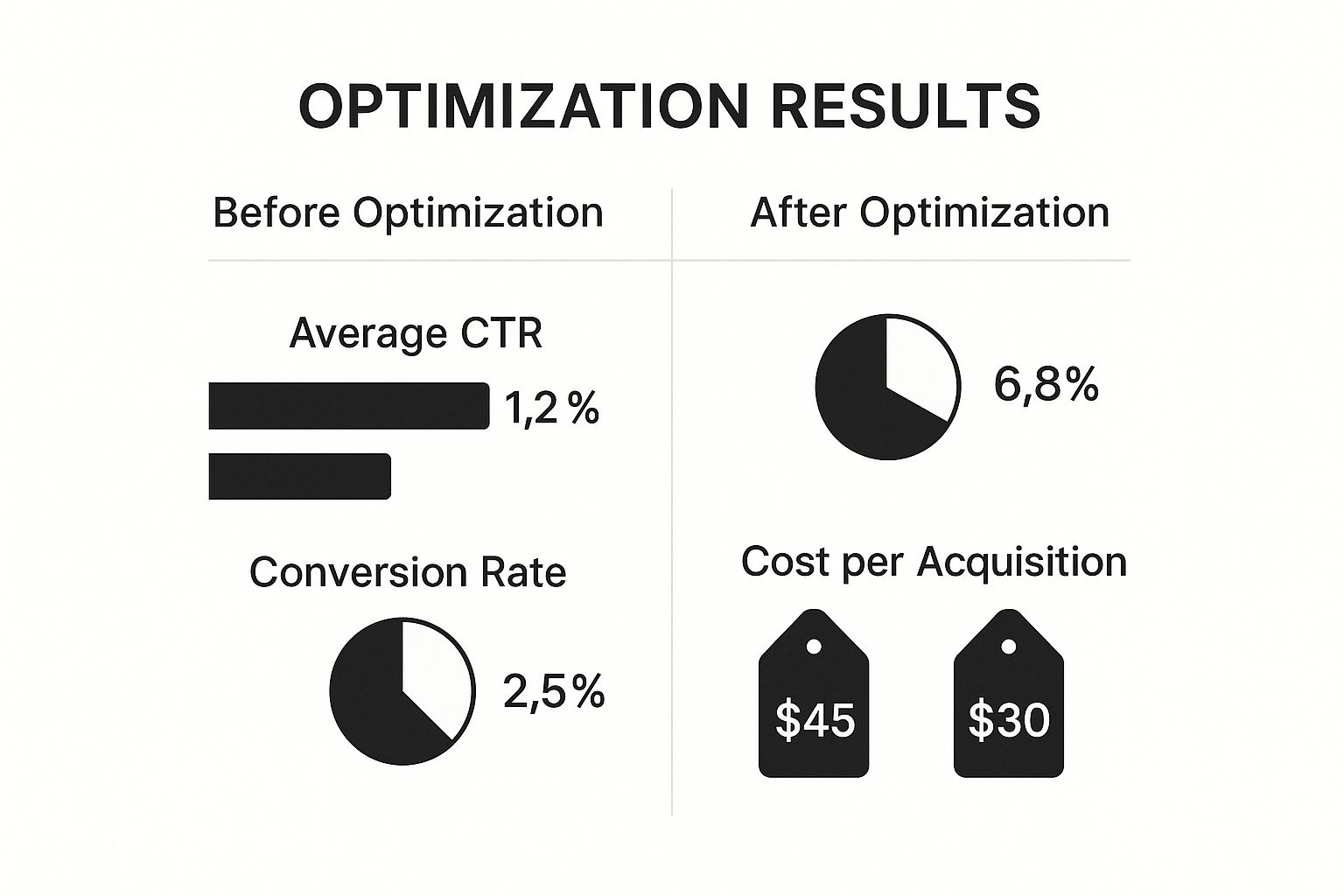
The data doesn't lie. Targeted, hands-on optimization directly improves efficiency and can easily triple your key performance indicators, turning that wasted spend into profitable conversions.
The Expert Consultant Advantage
So what's the alternative? Working with an independent expert offers a fundamentally different experience. I've built my business around a simple idea: your results are my results. There's no bloated overhead, no layers of bureaucracy—just direct, specialized expertise focused on your growth.
Expert Consultant vs. Large Agency Approach
The differences in approach, communication, and ultimately, results, are stark. Here’s a quick breakdown of what you get with a dedicated expert versus a typical over-priced agency.
Attribute | Individual Expert Consultant | Typical Large Agency |
|---|---|---|
Point of Contact | Direct access to the senior expert managing your account. | A junior account manager serves as an intermediary. |
Strategy | 100% custom-built around your specific business goals. | Often relies on recycled templates and "playbooks." |
Accountability | A single point of accountability for all results. | Diffused responsibility across a large, layered team. |
Speed & Agility | Changes and tests can be implemented in hours or days. | Bureaucracy and internal processes can take weeks. |
Cost Structure | Transparent pricing without hidden overhead. | Retainers are inflated by sales teams and office costs. |
Ultimately, a dedicated consultant model is built on partnership and direct accountability, ensuring your investment is managed by someone with a vested interest in your success—not just another account on a long list.
This partnership means you get direct access to an expert who lives and breathes Google Ads. There are no layers of bureaucracy, no competing priorities from a massive client roster. It’s a personalized approach that delivers the specialized attention you need for sustainable growth. If you're ready to see the difference, explore these **PPC campaign management services that crush agency overhead** and deliver far superior results.
The greatest flaw in the agency model is the diffusion of responsibility. When everyone is responsible, no one is. An individual consultant, however, is fully accountable for every dollar spent and every result delivered.
This focused partnership ensures every decision—from keyword selection to bid adjustments—is made with a deep understanding of your specific business goals. It's the difference between having a general practitioner look at your campaign and having a leading surgeon operate on it. Both are professionals, but only one has the specialized skill set to perform a complex, high-stakes procedure successfully.
Conducting a Ruthless Account Structure Audit

A messy account structure is the #1 reason I see PPC campaigns fail to scale. Think of it like a warehouse where your best products are buried in the back—it makes it impossible for Google's algorithm to find the right customer for the right product. This is precisely where most bloated agencies drop the ball. They apply the same cookie-cutter structure to every client, completely ignoring the nuances that drive actual results.
That's not how I work. My first move is always a ruthless, top-to-bottom audit of your account's foundation. This isn't just about glancing at campaign and ad group names. It’s a deep dive into the core logic of how your account is organized to make sure it’s built for profit, not just for show.
Deconstructing the Agency-Built Campaign
Big agencies love complexity. It looks impressive on reports and helps justify their hefty retainers. I regularly see accounts with hundreds of campaigns and ad groups that are redundant, poorly targeted, and actively competing against each other. This internal bidding war, known as keyword cannibalization, just drives up your click costs without adding a single new customer.
As an independent consultant, my philosophy is to simplify to amplify. My goal is to forge a clean, logical structure where every campaign has a clear purpose, every ad group is tightly themed, and every dollar is spent with intent. This meticulous approach to PPC campaign optimization immediately slashes wasted spend and makes your performance data crystal clear.
One of the most common red flags I find is structuring campaigns around keyword match types instead of customer intent. For instance, an agency might build separate campaigns for "plumber near me" in broad, phrase, and exact match. This is a hopelessly outdated and inefficient strategy.
A well-structured account doesn't fight Google's algorithm—it guides it. The goal is to feed the AI clean, organized data so it can make profitable decisions for you. Bloated, chaotic structures just confuse the system and burn your budget.
Instead, a modern, expert-led structure segments campaigns based on where the user is in their buying journey. High-intent keywords (like "emergency plumber cost") belong in a completely different campaign than research-focused keywords (like "how to fix a leaky faucet"). This allows for dedicated budgets, ad copy, and landing pages tailored to each audience segment.
Moving Beyond Single Keyword Ad Groups
For years, Single Keyword Ad Groups (SKAGs) were hailed as a best practice. The theory was simple: create one ad group for every single keyword to achieve perfect ad-to-keyword relevance. But with Google's massive shift toward semantic search and AI-driven matching, this strategy is now more of a liability than an asset.
I frequently inherit accounts drowning in thousands of SKAGs, each one getting a trickle of traffic. This creates a few big problems:
Data Dilution: Performance data gets spread so thin that neither you nor Google’s algorithm can gather enough insight to make smart optimizations.
Management Nightmare: Trying to manage and update ads across thousands of individual ad groups is an incredible time sink.
Missed Opportunities: Google's AI understands intent better than ever. A single ad group with a tight theme of related keywords will capture a wider range of relevant queries than a rigid SKAG ever could.
My approach is to use tightly themed ad groups. For example, instead of separate ad groups for "running shoes for flat feet" and "best sneakers for flat feet," I’ll group them into a single ad group called "Flat Feet Running Shoes." This consolidates data, simplifies management, and empowers Google’s AI to match your ads to a broad spectrum of relevant user searches, boosting overall performance. This is the kind of strategic precision you lose with an overburdened agency.
Mastering Keyword Intent and Negative Sculpting
Keywords aren't just search terms; they're a direct line into your customer's brain. A bloated agency will often chase vanity metrics, bidding aggressively on high-volume, broad-match keywords. These look great in a report but deliver nothing but unqualified clicks and a torched budget. It's one of the fastest ways they burn through your money.
A true specialist, on the other hand, understands the subtle art of "keyword sculpting." This isn't about trusting a keyword tool's predictions. It's about diving deep into your search query reports to see what your audience is actually looking for and separating the researchers from the buyers.
This single distinction is the foundation of profitable PPC campaign optimization. An agency might dump all related keywords into one bucket, but I meticulously separate them by commercial intent to control every dollar and every message with absolute precision.
The Power of Proactive Negative Sculpting
Most agencies treat negative keywords like a janitorial task—a reactive cleanup they might get to once a month. By then, hundreds, if not thousands, of dollars have been vaporized on irrelevant searches. I don't see negative keywords as a broom; I see them as a shield.
My approach is proactive from day one. I build out robust negative keyword lists from the very beginning, anticipating and blocking irrelevant traffic before it ever costs you a dime. This goes way beyond just adding obvious terms like "free" or "jobs." It's about getting into the weeds of your specific industry.
For instance, I had a client selling high-end "custom wood furniture" who was getting hammered with clicks from searches like:
"DIY wood furniture plans"
"refinish wood furniture service"
"cheap wood furniture assembly"
An agency might let that bleed out for weeks. I spotted and negated these intent mismatches immediately. That simple move preserved the budget for users actually searching for things like "buy solid oak dining table" or "handmade cherry wood bookshelf"—the queries that drive sales.
A Framework for Commercial Intent
Structuring your account around user intent is a complete game-changer. It's also something most large firms ignore because it takes more work than their cookie-cutter setups allow. I organize keywords into distinct tiers, each with its own budget, bids, and ad copy.
High-Intent Keywords: These are your money-makers. Think terms with strong buying signals like "buy," "quote," "price," or specific model numbers. They get the most aggressive bids and the lion's share of the budget.
Mid-Intent Keywords: These are your comparison shoppers looking for terms like "best running shoes for flat feet" or "invisalign vs braces." They're close, but they need a little more convincing. We send them to targeted landing pages that help them make a decision.
Low-Intent Keywords: This is informational territory—queries like "how to..." or "what is..." An agency will let broad match pull these in all day long, draining your budget on clicks with zero chance of converting. They have no place in a direct-response search campaign.
Separating keywords by intent allows you to align your ad spend directly with revenue potential. Instead of spreading your budget thinly across all traffic, you focus your investment on the users most likely to become customers.
This strategic segmentation is how you dramatically improve conversion rates and crush your Cost Per Acquisition (CPA). And managing those costs is critical. The global search advertising market is projected to hit $351.55 billion by 2025. With the average CPA for search ads hovering around $48.96, sloppy targeting isn't just inefficient—it's a death sentence. You can explore more top PPC statistics and trends from Digital Silk.
By focusing relentlessly on high-intent keywords and aggressively sculpting out the waste, we make sure every single click has the highest possible chance of turning into a customer. That's the expert-driven approach that volume-focused agencies just can't replicate.
Crafting Ad Copy and Landing Pages That Convert
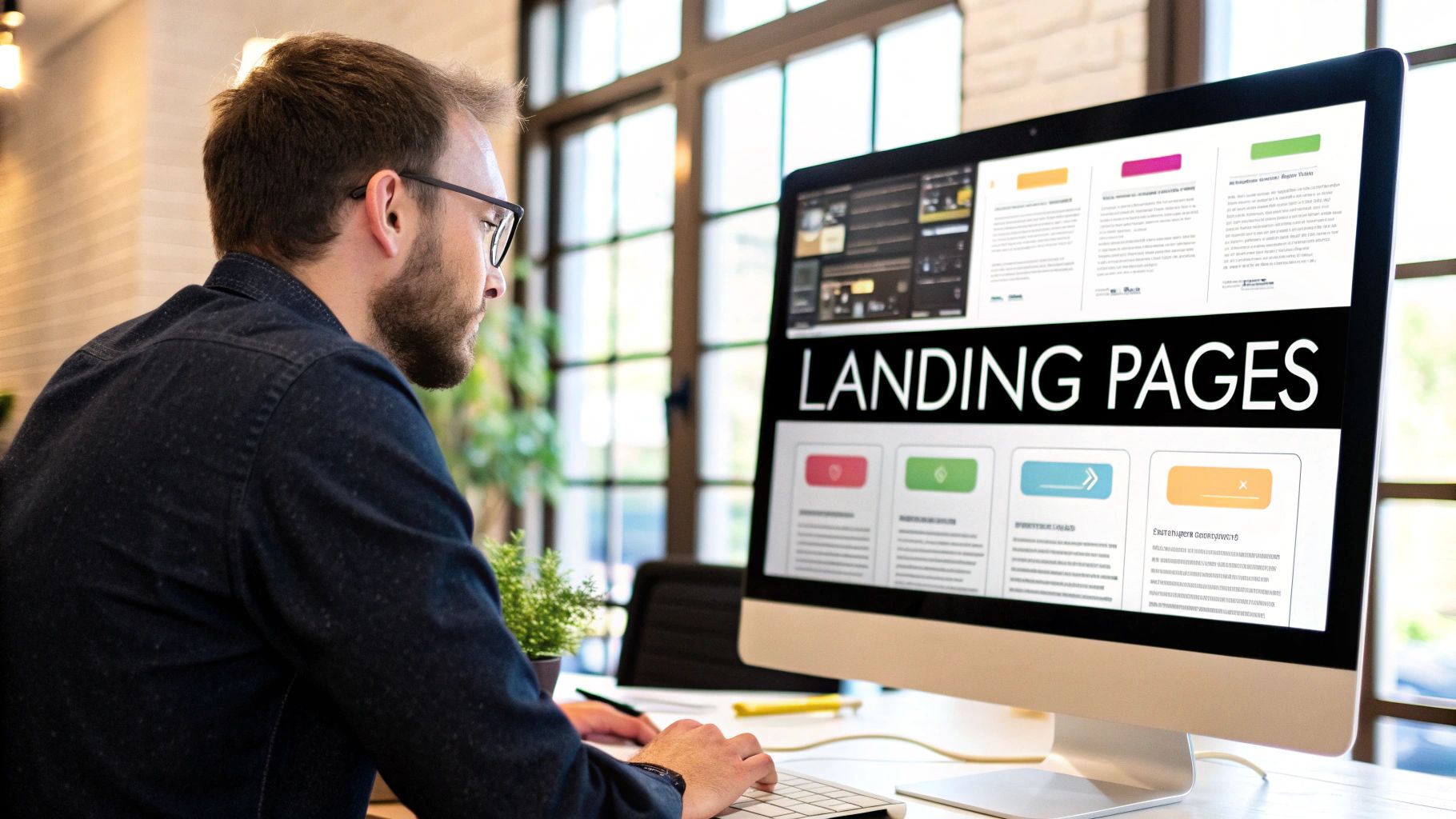
Here's a hard truth: Your ad copy makes a promise. Your landing page is where you cash that check. If there's any disconnect between the two, you’re just lighting ad spend on fire and watching it turn into bounce rates.
Most agencies will tell you to "A/B test." It's advice so generic it’s almost useless. This is where the surgical precision of an experienced consultant becomes your single biggest advantage.
Large, bloated agencies simply don't have the time or specialized skill to dissect the psychology behind your ad copy or map the user journey on your landing page. They're stuck in a volume-based model, churning out templated ads. My entire focus is on creating a seamless, persuasive path from click to conversion—a critical piece of any real PPC campaign optimization.
Mastering Responsive Search Ads with Precision
Responsive Search Ads (RSAs) are incredibly powerful, but if you just set them and forget them, you're inviting chaos. Sure, Google's AI will mix and match your headlines and descriptions to find winning combinations. But most agencies just dump in a dozen generic headlines and pray for the best, leading to nonsensical or weak ad variations.
The expert approach is to control the chaos. I use strategic pinning to make sure your core message always cuts through the noise.
Pin Your Core Value Prop to Position 1: This guarantees your unique selling proposition (USP) shows up first, every single time. No matter what Google tests, your main message is locked in.
Pin a Strong Call-to-Action to Position 2: You need to tell people what to do next. Pinning something like "Get Your Free Quote" or "Shop Now & Save 20%" ensures the user's next step is always clear.
Let Google Test in Position 3: This is where we let the algorithm do its thing. Give it a handful of benefit-driven headlines to test and find new winning combinations, all without sacrificing your core message.
This hybrid model gives you the best of both worlds: total control over your core messaging and the full machine-learning power of Google's algorithm.
A classic agency mistake is treating Responsive Search Ads like a creative free-for-all. Real optimization comes from strategically guiding the AI, not just letting it run wild. Pinning key messages lets you maintain brand consistency and control the narrative.
The Landing Page Audit Checklist Agencies Ignore
Even the best ad copy on the planet will fall flat if it sends users to a confusing or slow landing page. The reality is that agencies rarely have the bandwidth to do a deep-dive audit of your user experience. For me, it's non-negotiable.
Your landing page has to achieve perfect message match. If your ad promises a "50% Off Spring Sale," those exact words better be the first thing a user sees on the page. Any hesitation, any moment of confusion, and they're hitting the back button—on a click you just paid for.
A proper landing page audit digs into the conversion-killing mistakes that almost always get overlooked:
Page Load Speed: Does your page load in under three seconds? Anything longer and you’re losing a huge chunk of potential customers before they even see your offer.
A Single, Clear Call-to-Action (CTA): Is there one obvious button you want people to click? Multiple CTAs just create decision paralysis. Keep it simple.
Frictionless Forms: Are you asking for too much information? A form with seven fields is dead on arrival compared to one with just three. Only ask for what is absolutely critical to get the conversation started.
Mobile-First Design: How does the page look and feel on a smartphone? With over 60% of searches now happening on mobile, a clunky experience is unacceptable.
These details are what separate a campaign that breaks even from one that's wildly profitable. A focused expert obsesses over these elements because that's where the real ROI is hiding. Successful PPC isn't about automated templates; it's about a holistic view of the entire user journey.
Leveraging Smart Bidding With Expert Oversight
Relying purely on Google’s AI without a seasoned expert at the helm is like handing the keys of a Formula 1 car to a brilliant driver who's been blindfolded. Sure, the engine is powerful, but it’s going to crash without a strategic map and clear direction. Smart Bidding is that engine, but its performance hinges entirely on the fuel you give it—your conversion data.
A classic mistake I see from big, bloated agencies is just flipping the "on" switch for Smart Bidding and hoping for the best. They treat it like a magic button, expecting the algorithm to solve everything. This hands-off approach isn't just lazy; it’s one of the fastest ways to burn through your ad spend with nothing to show for it.
The Myth of Pure Automation
Smart Bidding strategies like Target CPA and Maximize Conversion Value sound simple on the surface, but they are incredibly nuanced. The algorithm is a learning machine, and it only learns from the data you feed it. If you feed it messy, inaccurate, or low-value data, it will get very, very good at optimizing for the wrong things.
I see this constantly when I take over accounts from other agencies. The previous manager was tracking "newsletter sign-ups" as a primary conversion, essentially telling Google's AI this was the ultimate goal. The algorithm did its job perfectly, spending the entire budget finding people who love signing up for newsletters while completely ignoring users ready to actually buy something.
An expert's first job is to ensure your conversion tracking is pristine. We dig deep to make sure you're only measuring actions that directly contribute to your bottom line. Clean data is the absolute, non-negotiable foundation for making Smart Bidding work.
Guiding the Algorithm, Not Just Following It
A seasoned specialist doesn’t just enable Smart Bidding; we actively manage it. We provide the crucial human oversight needed to interpret performance, spot weird anomalies, and make strategic adjustments on the fly. We know which bidding strategies to use and, more importantly, when to avoid them.
Here’s what that expert oversight looks like in practice:
Target CPA: This is great for lead gen when you know exactly what a lead is worth. I'll set an initial target based on historical data but watch it daily, tweaking it for market shifts or seasonality. An overworked agency might set it once and not look again for a month.
Maximize Conversion Value: Perfect for e-commerce with products at different price points. My job is to ensure your product feed is flawless and your ROAS (Return On Ad Spend) targets are realistic, preventing the AI from just chasing cheap, low-value sales.
Maximize Conversions: Use this one with extreme caution. Without a CPA or ROAS guardrail, this strategy can aggressively overspend to get conversions at any cost. I typically only use this for short bursts when launching a new campaign to gather data quickly, then switch to a more controlled strategy.
Relying on AI without strategy is just automation. Combining AI with expert human insight is PPC campaign optimization. An expert knows how to feed the machine the right data and when to pull the manual levers to steer it back on course.
This level of active management is something you just don't get from an over-extended agency whose model doesn't allow for the daily, meticulous oversight required to make Smart Bidding truly profitable. For more on this, check out our expert's guide to beating bloated agencies.
The Strategic Value of Human Oversight
Beyond clean data, an expert provides the context an algorithm can't see. We understand your business goals, your inventory levels, and your actual profit margins. For instance, knowing that around 82% of Google Ads pros use demographic targeting helps us layer on strategic filters to refine the AI's focus. We also know that layering on geo-targeting can boost click-through rates by up to 15% by tailoring messages. You can discover more key insights about PPC stats on brentonway.com.
An algorithm doesn't know you're discontinuing a product line or that a new competitor just crashed the party. A dedicated consultant does. We use that knowledge to make bid adjustments, apply negative keywords, and shift budgets—providing the strategic direction that keeps the "blind pilot" from flying your campaign into a wall. This synthesis of machine power and human expertise is the only way to achieve real, sustained growth.
Your Questions on PPC Optimization Answered
Navigating the world of PPC can feel like trying to find a clear signal in a lot of static. Let's cut through the noise. Here are some straight answers to the most common questions I get about PPC campaign optimization, framed from my perspective as a hands-on consultant, not a bloated agency.
How Often Should I Optimize My PPC Campaigns?
There’s no magic number here. The real answer is all about consistent, proactive management.
I’m typically inside my client accounts daily, or at the very least, several times a week. An overworked junior manager at a huge agency? They might glance at it once a week, often long after your budget has been torched by a poor-performing keyword.
Think of it like this:
Daily (or Near-Daily) Checks: This is your first line of defense. I'm talking about monitoring high-spend campaigns for sudden cost spikes and combing through the search terms report to add negative keywords. This stops budget drain before it starts.
Bi-Weekly or Monthly Reviews: This is where the strategic shifts happen. We're testing new ad copy, reallocating campaign budgets based on what's actually working, and digging into landing page metrics.
The mindset is the key difference. My approach is about constant, small improvements—not waiting for a fire to put out. Agencies often wait for a monthly report to tell them something is broken. I spot the problem in real-time and fix it.
Can I Do PPC Campaign Optimization Myself?
Absolutely, but be prepared for the "cost of education"—and I'm talking about the ad spend you will burn while learning the platform's endless quirks. The road to a positive return is a lot shorter when you work with someone who has already made the expensive mistakes in hundreds of other accounts.
It's a simple trade-off. You have to weigh the cost of your own time and the initial (and often painful) wasted ad spend against the fee for an expert who can get you results from day one.
An experienced consultant doesn't just click buttons; we apply years of pattern recognition to sidestep common traps a newcomer would never even see. It’s the fastest path to ROI. To learn more about this specialized approach, you can read our expert's guide on how pay-per-click optimization can help you beat bloated agencies.
What Is the Biggest Mistake in Google Ads Management?
Hands down, the single most common and costly mistake is broken conversion tracking. I see this constantly in accounts that have been passed around large, volume-focused agencies where setup is rushed and follows a one-size-fits-all template.
Often, businesses either fail to set up tracking correctly in the first place, or worse, they track low-value actions as if they're the main goal. A classic example is treating a "newsletter signup" with the same importance as a "request a quote" submission. This sends completely wrong signals to Google's Smart Bidding algorithms.
If your conversion tracking is wrong, you are telling Google’s powerful AI to chase the wrong customers. Every dollar you spend is being optimized for the wrong goal, guaranteeing poor results no matter how good your keywords or ad copy are.
My first move is always a deep audit of your conversion tracking. I make sure we're measuring what actually drives your business—qualified leads, valuable phone calls, or real sales. Without that solid foundation, every other optimization effort is just guesswork. Fixing this one fundamental flaw is often the fastest way to turn a failing campaign into a profitable one.
Ready to stop wasting your ad budget and get the expert oversight your campaigns deserve? At Come Together Media LLC, I provide the one-on-one, specialized Google Ads management that bloated agencies can't match. Book your free, no-obligation consultation today and let's build a profitable PPC strategy together.




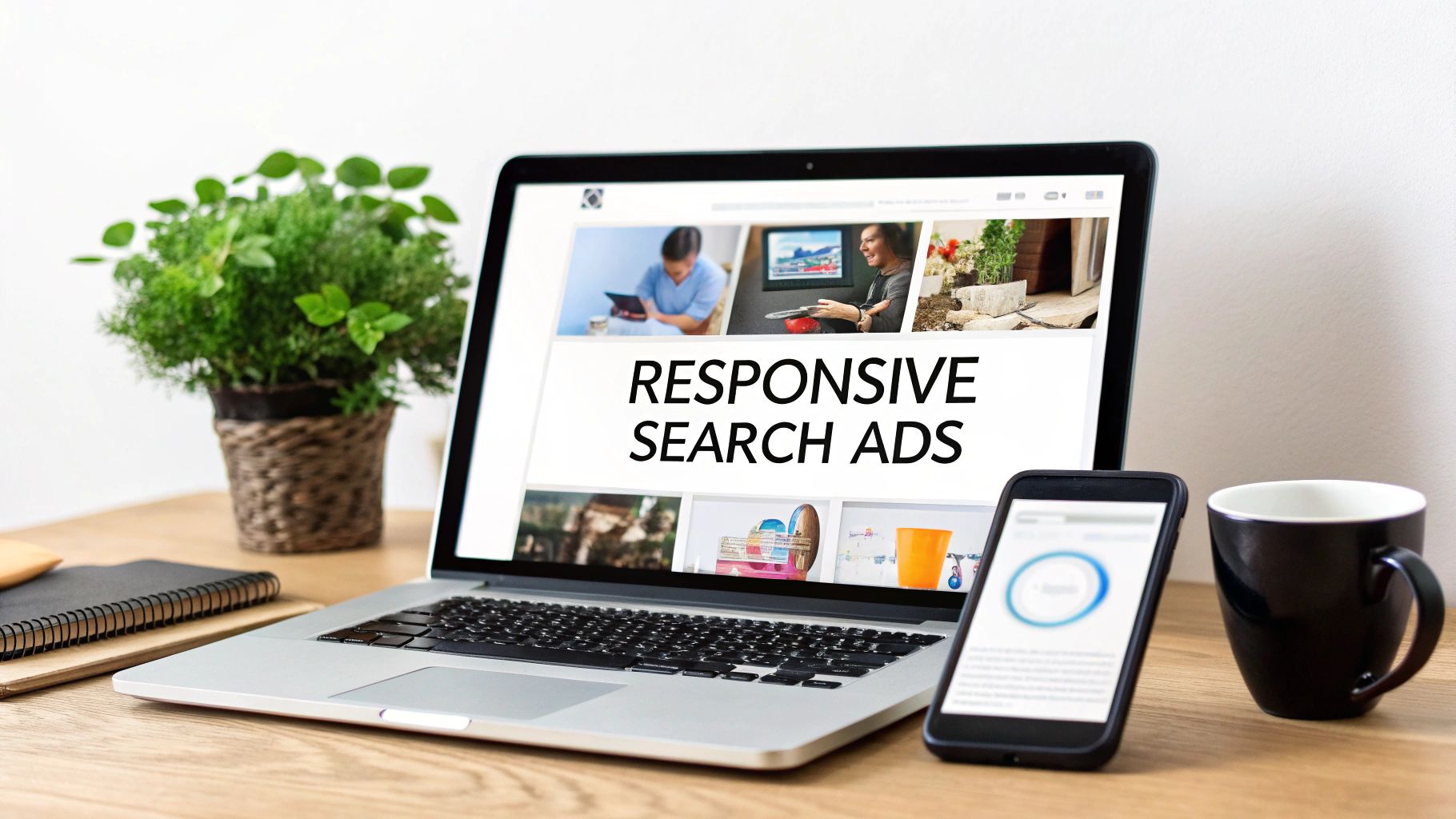
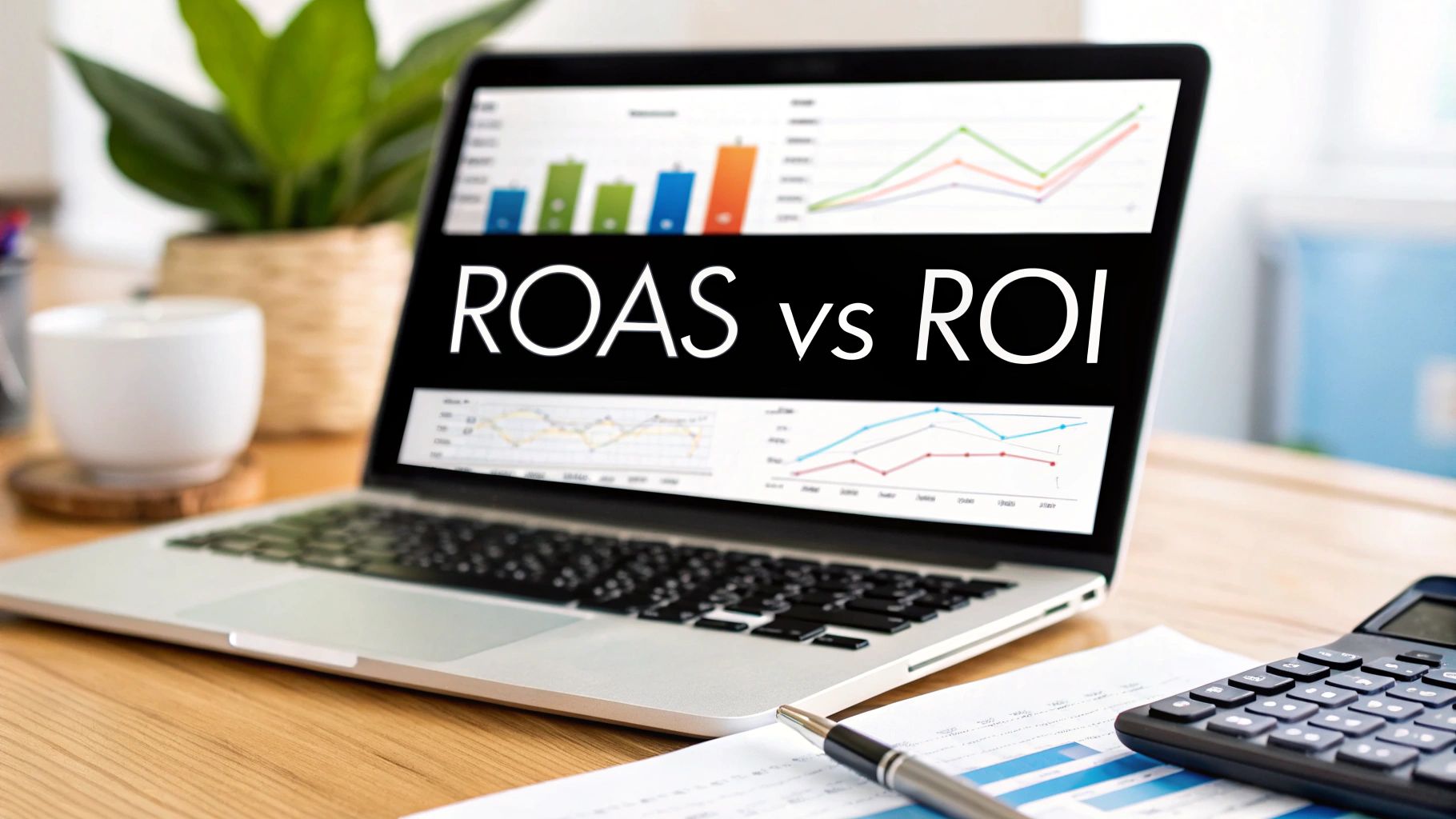
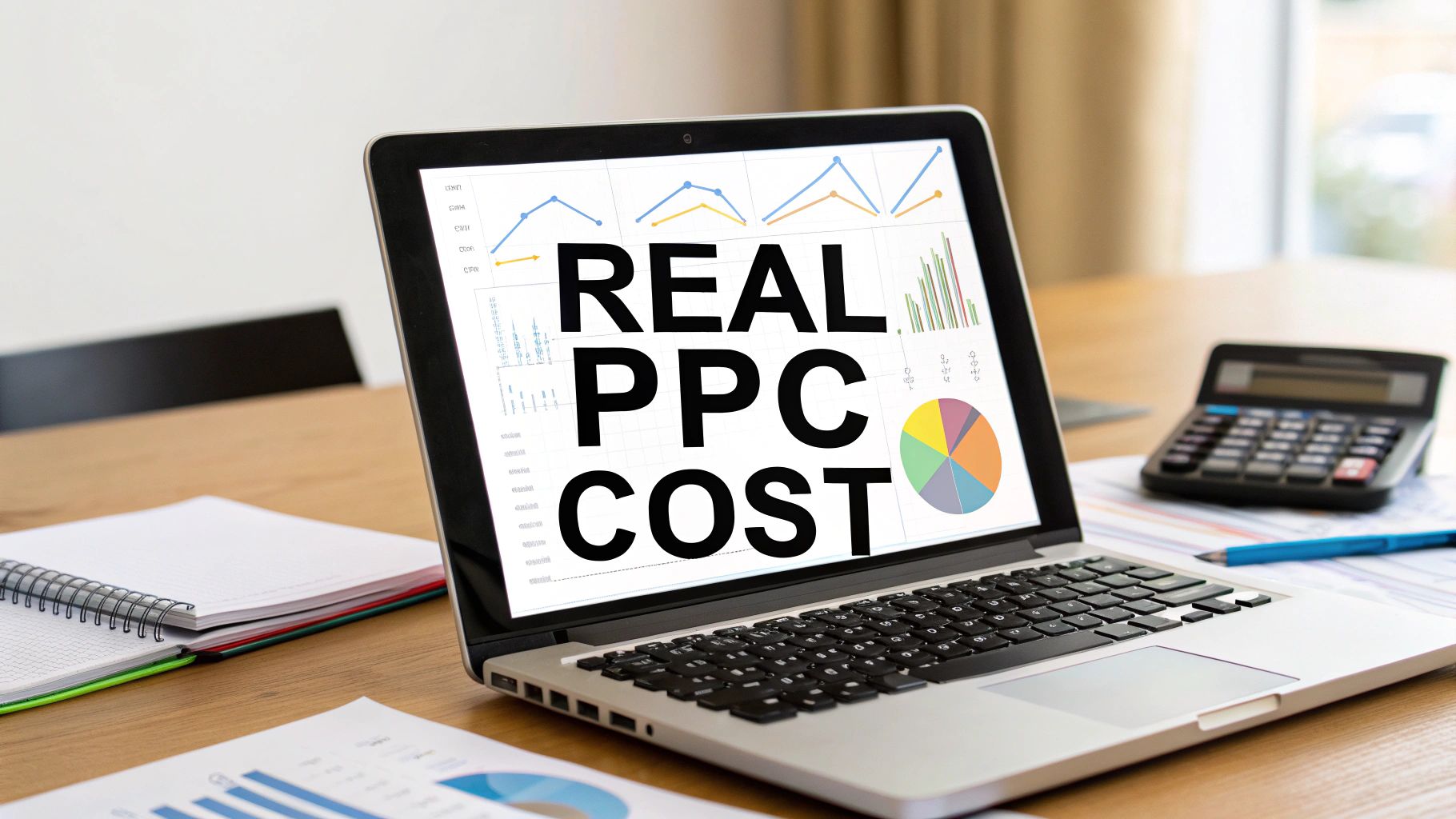
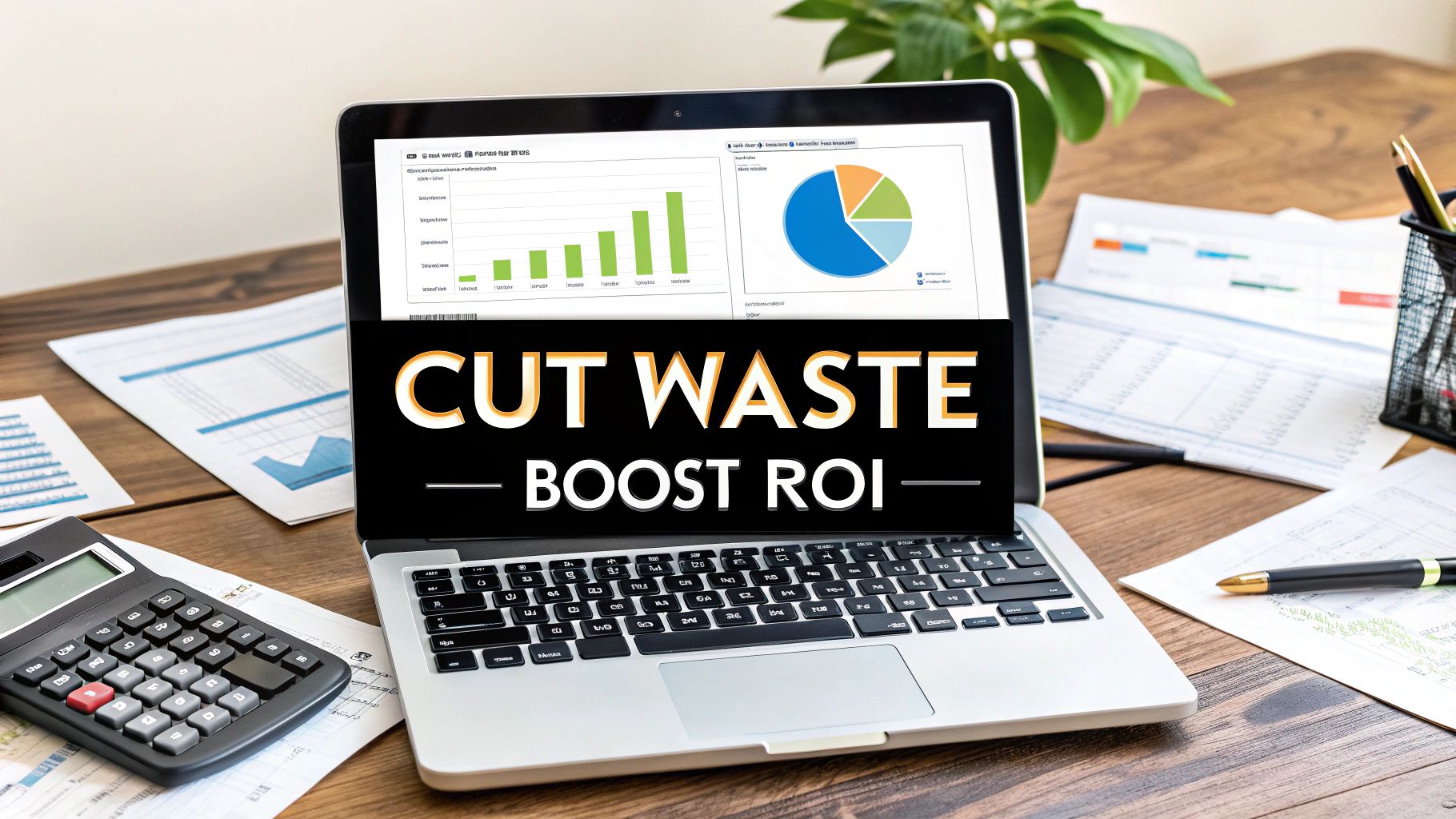
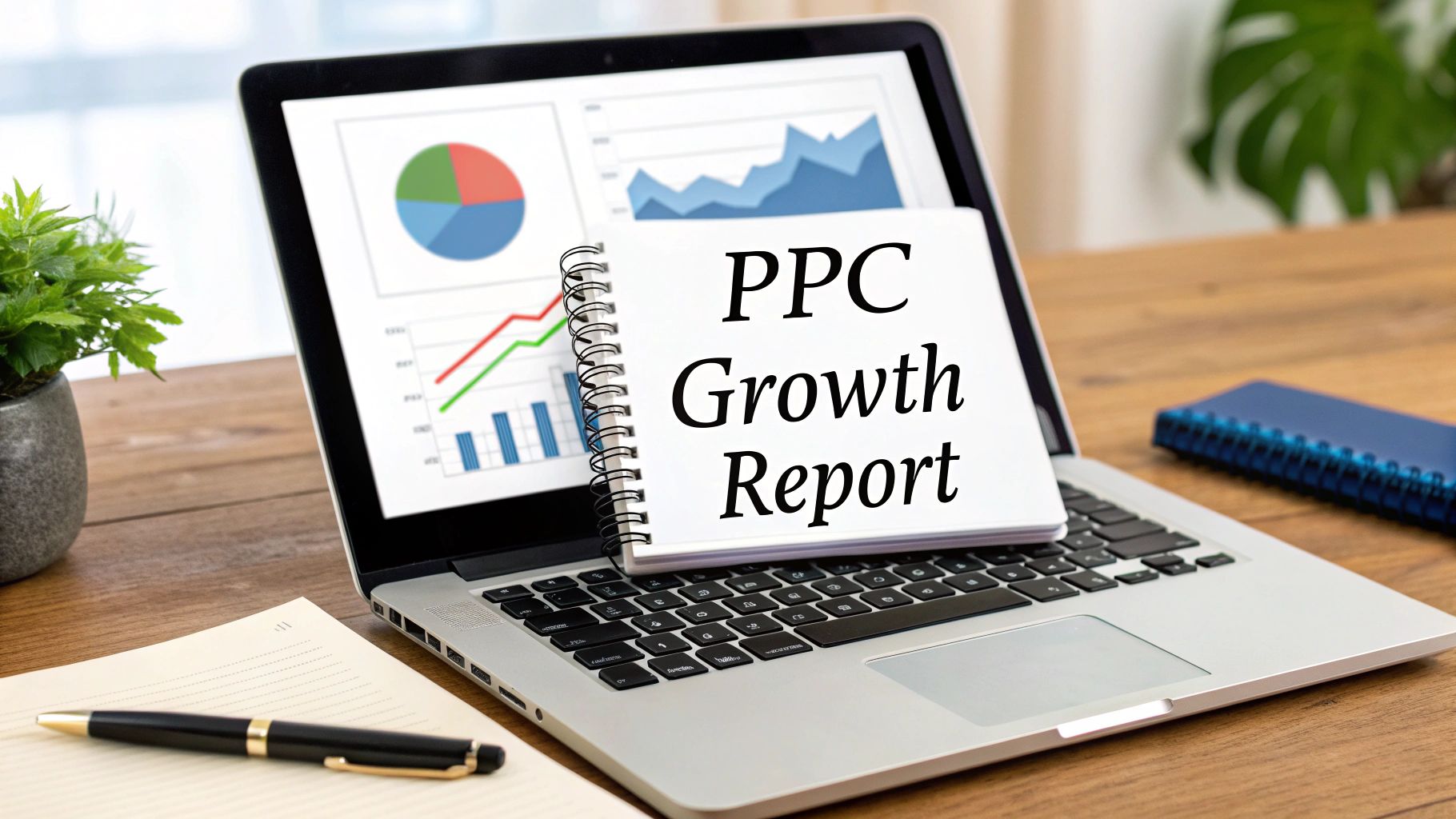
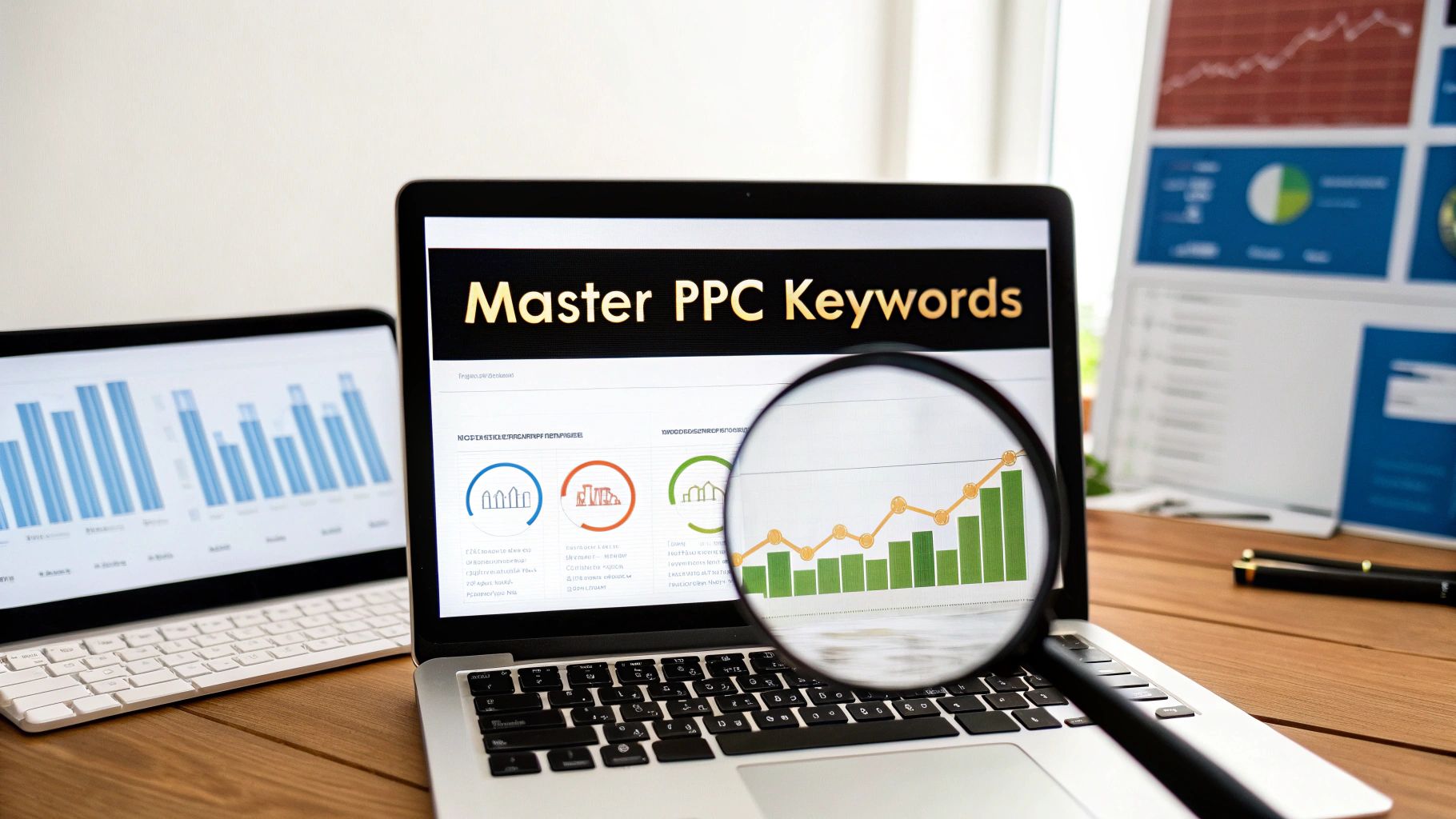
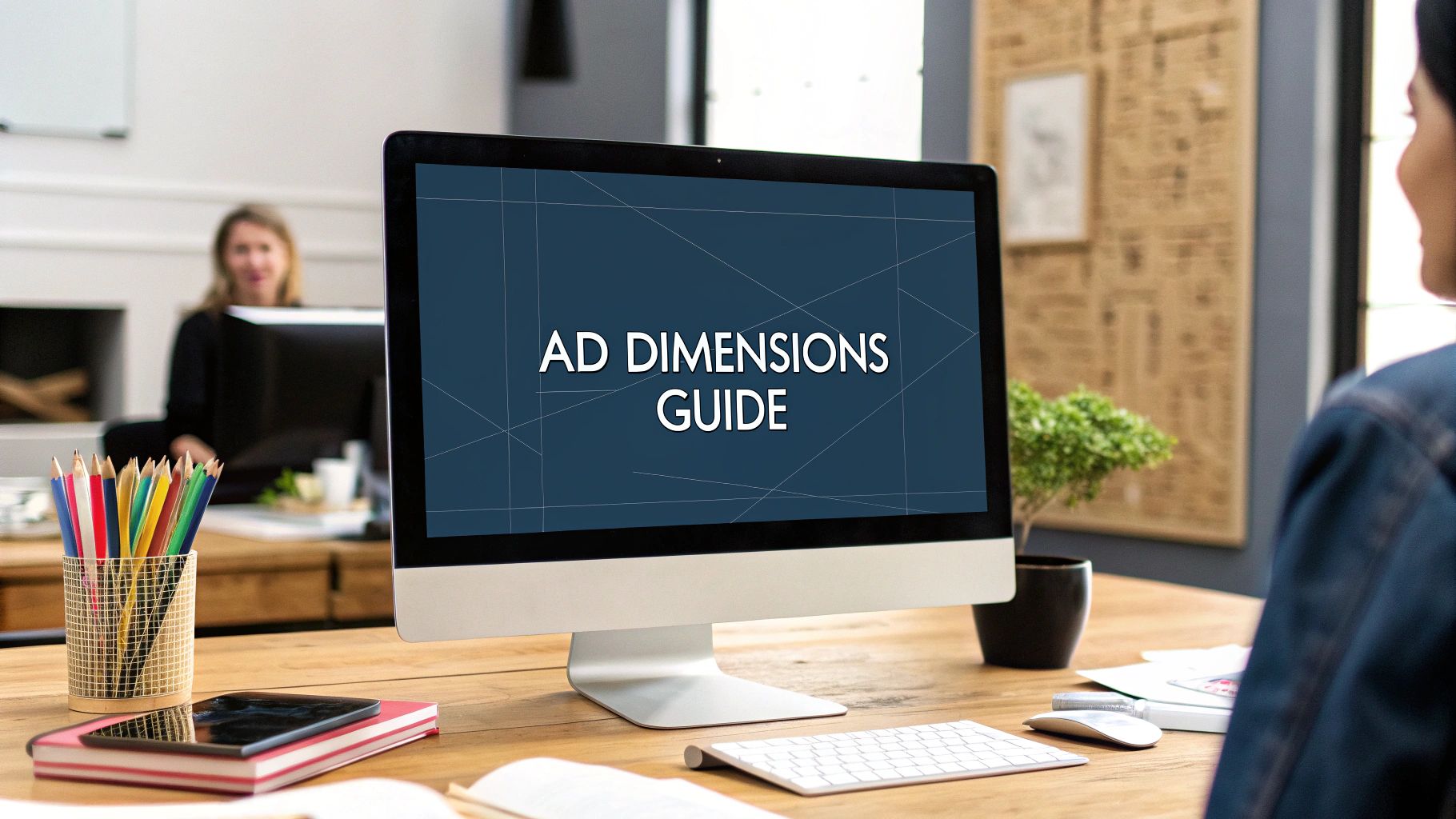
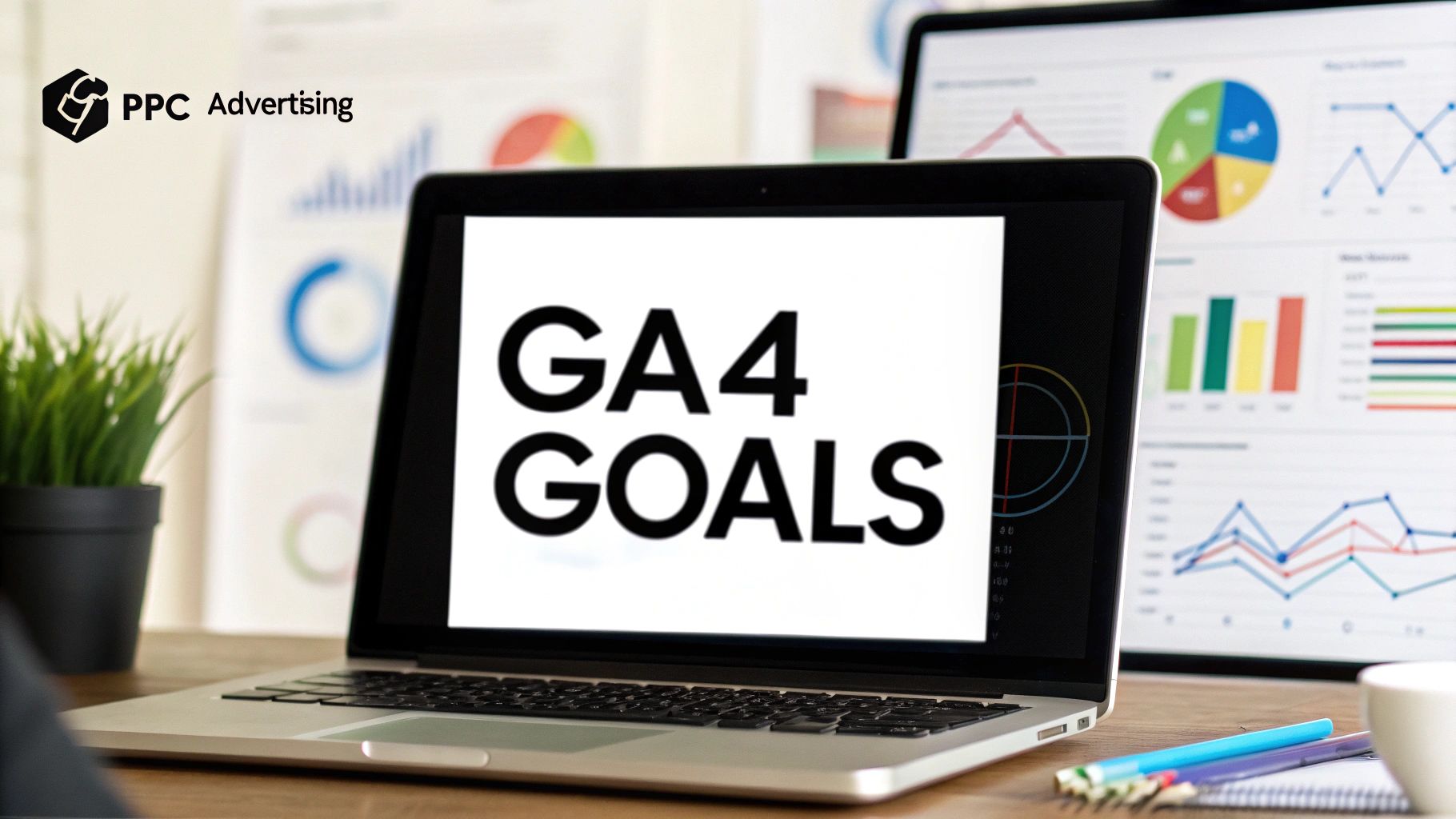
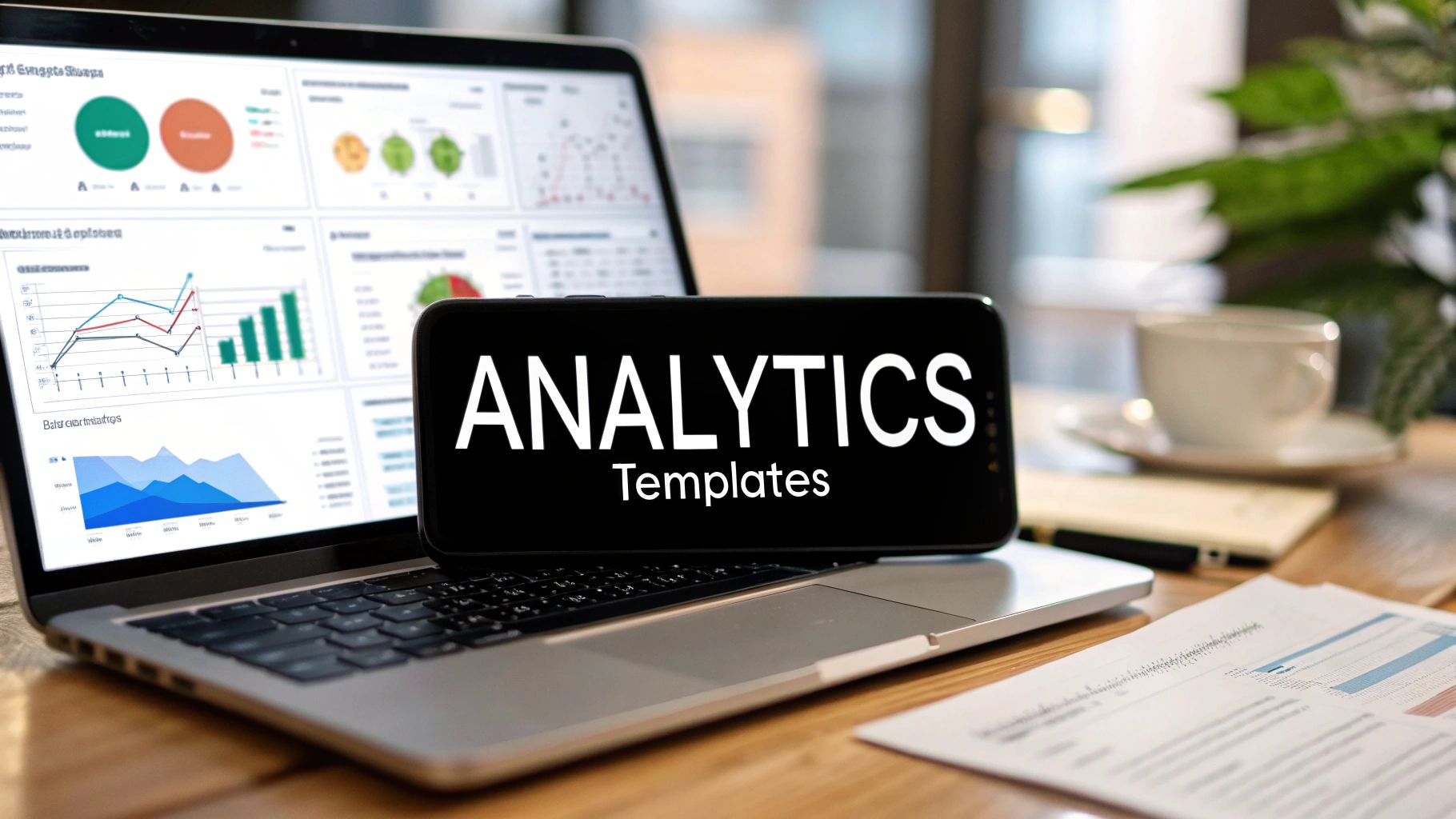
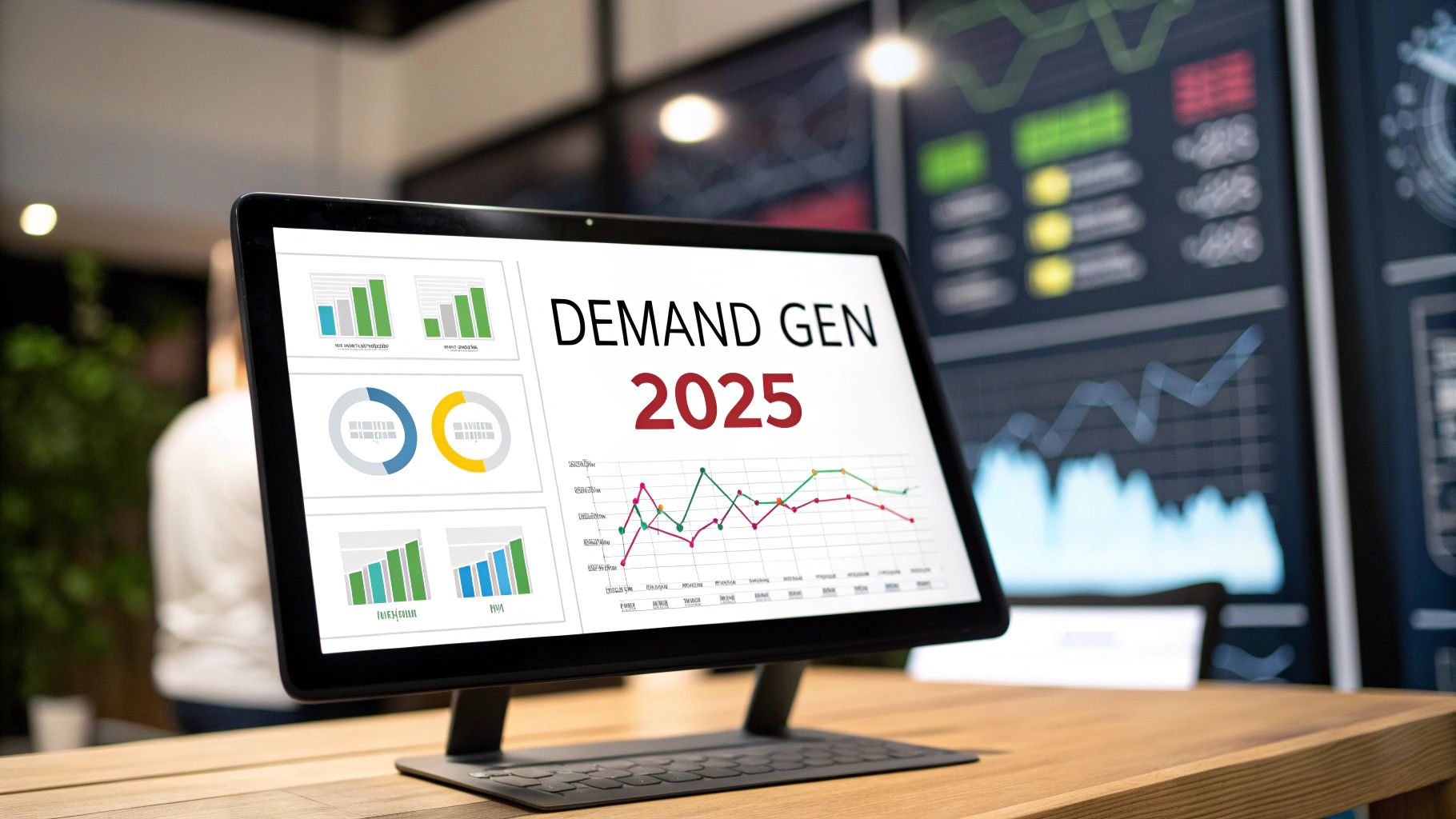
Comments